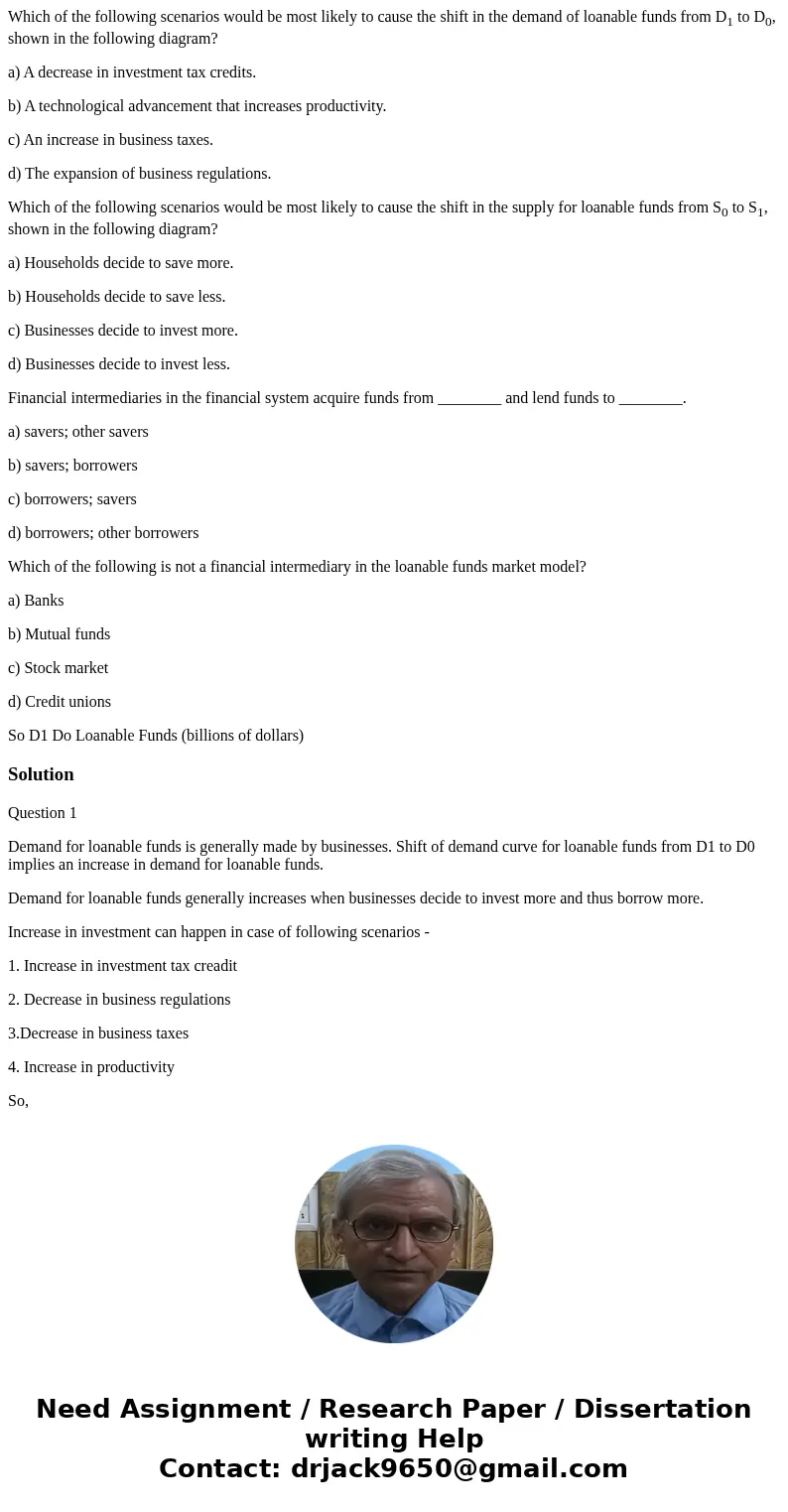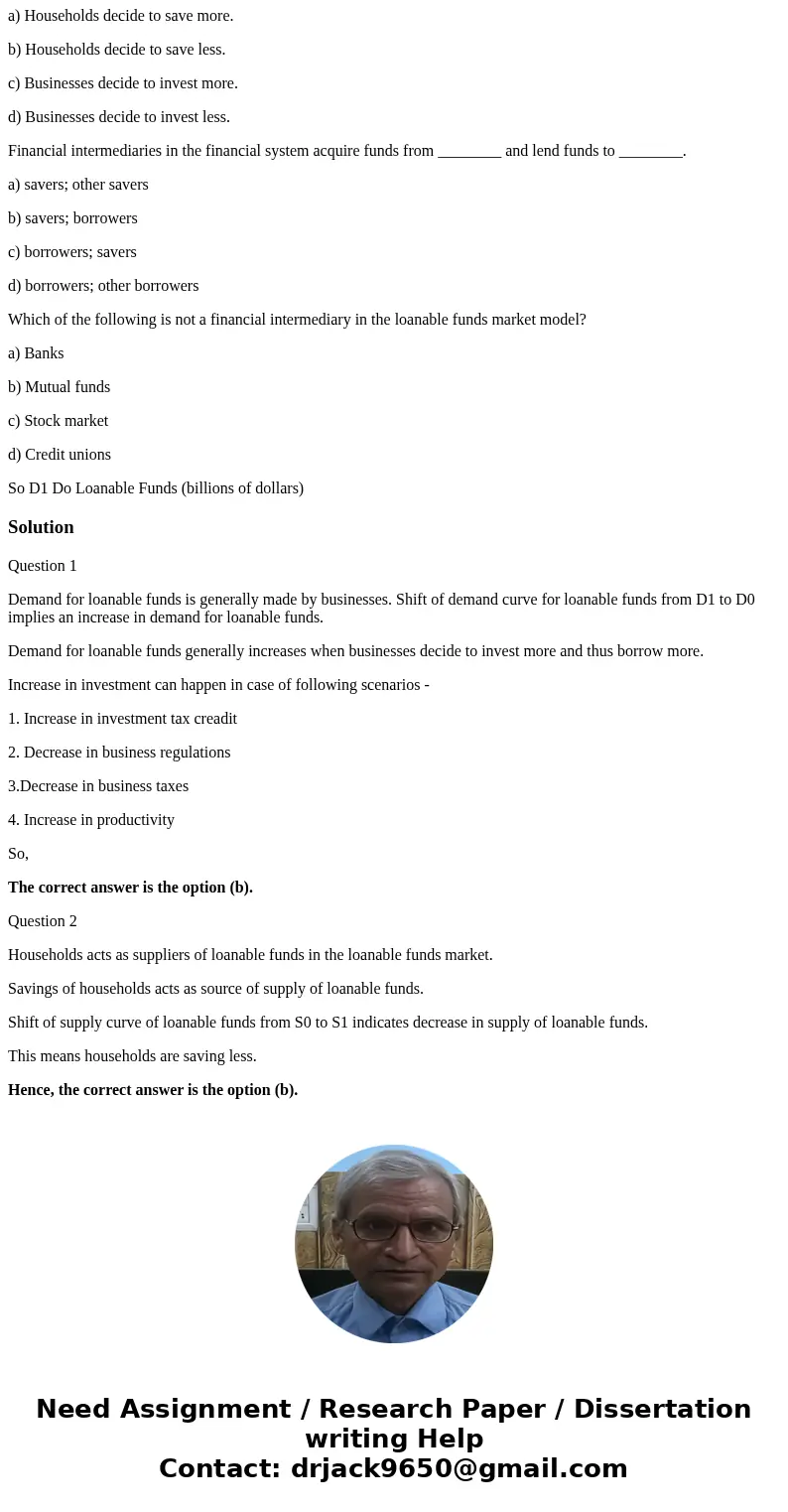Which of the following scenarios would be most likely to cau
Which of the following scenarios would be most likely to cause the shift in the demand of loanable funds from D1 to D0, shown in the following diagram?
a) A decrease in investment tax credits.
b) A technological advancement that increases productivity.
c) An increase in business taxes.
d) The expansion of business regulations.
Which of the following scenarios would be most likely to cause the shift in the supply for loanable funds from S0 to S1, shown in the following diagram?
a) Households decide to save more.
b) Households decide to save less.
c) Businesses decide to invest more.
d) Businesses decide to invest less.
Financial intermediaries in the financial system acquire funds from ________ and lend funds to ________.
a) savers; other savers
b) savers; borrowers
c) borrowers; savers
d) borrowers; other borrowers
Which of the following is not a financial intermediary in the loanable funds market model?
a) Banks
b) Mutual funds
c) Stock market
d) Credit unions
So D1 Do Loanable Funds (billions of dollars)Solution
Question 1
Demand for loanable funds is generally made by businesses. Shift of demand curve for loanable funds from D1 to D0 implies an increase in demand for loanable funds.
Demand for loanable funds generally increases when businesses decide to invest more and thus borrow more.
Increase in investment can happen in case of following scenarios -
1. Increase in investment tax creadit
2. Decrease in business regulations
3.Decrease in business taxes
4. Increase in productivity
So,
The correct answer is the option (b).
Question 2
Households acts as suppliers of loanable funds in the loanable funds market.
Savings of households acts as source of supply of loanable funds.
Shift of supply curve of loanable funds from S0 to S1 indicates decrease in supply of loanable funds.
This means households are saving less.
Hence, the correct answer is the option (b).


 Homework Sourse
Homework Sourse